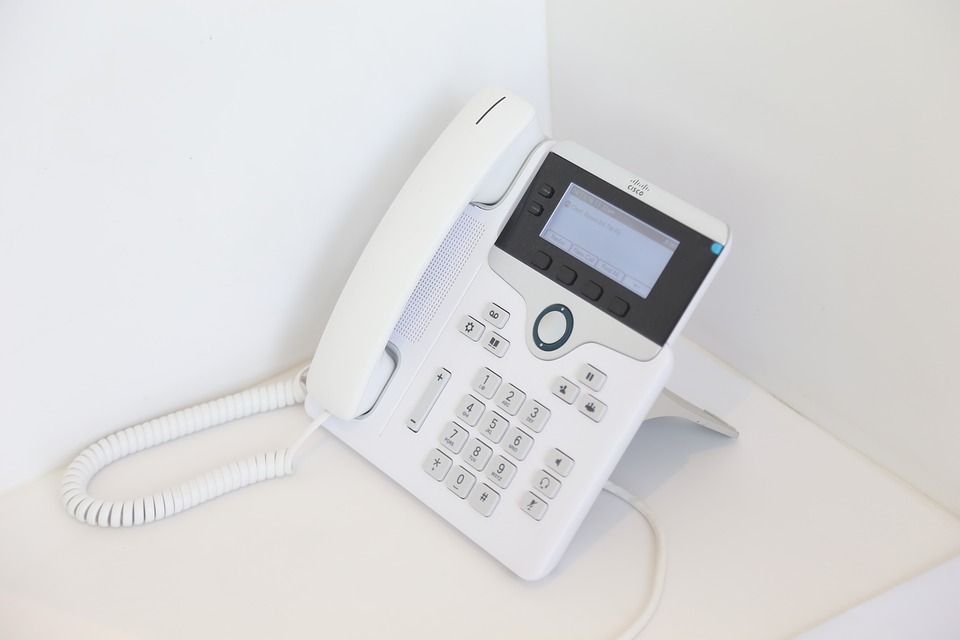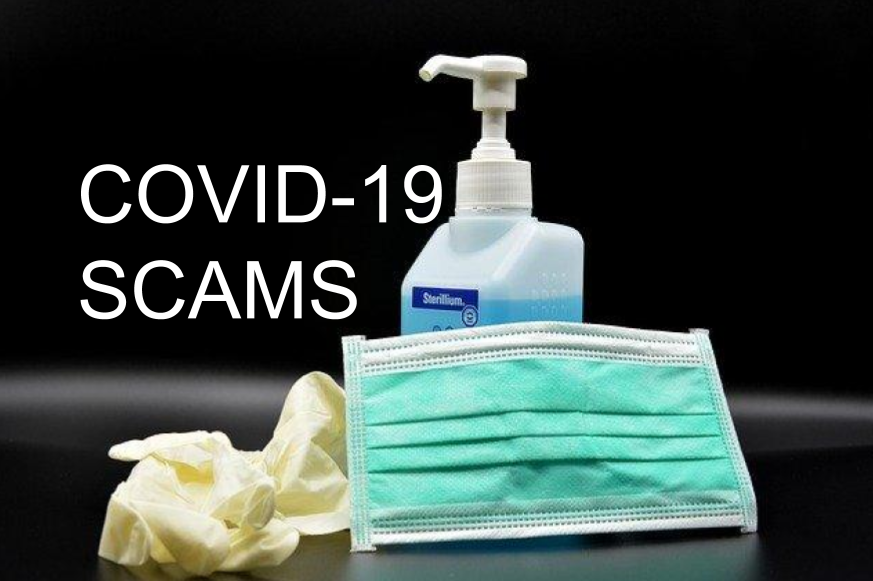The pandemic is getting more serious, and scammers are calling home phones and sending text messages to mobile phones, which contain misinformation or could leave you out of pocket if you fall victim. In the UK, we have seen more and more reports regarding to the coronavirus scam according to Ofcom, and therefore would like to remind you again about this topic.
分类目录归档:Telefonspam
(English) Think phone spam isn’t a problem in the UK? Think again! Check out our annual report to see our latest research
Dear tellows fellows,
This week we celebrate the release of our latest annual report!
Your tellows team would like to wish you a happy new year! The new decade officially started more than one week ago and we want to take the chance to thank you all for the support you showed to our website in the past year. So, how has 2019 been as far as phone calls are concerned? Find out in our new annual report!

The annual report contains information about spam trends during 2019, including information about caller type, user and usage stats. This is in addition to general information about the growth of tellows throughout the year, most notably on its social media platforms. Check out our blog article from December 2019 which contains all the useful stats about user activity on tellows.
As compared to 2018, in 2019 harassment calls significantly decreased in terms of percentage (from 29% to 19%), but the proportion of calls coming from telemarketers and aggressive advertising has increased. However, more trustworthy numbers have also been reported on tellows, making them the most popular caller type recorded in the UK. Among the most searched numbers from last year are:
- +441709357345 (search requests 113838, ratings 91), which is supposedly a number used by the telecommunication company Vodafone
- +442078553116 (search requests 97080, ratings 98), supposedly identifiable with Amazon Delivery service
- +441844398909 (search request 238744, ratings 85), supposedly EE.
All in all, in terms of caller types, UK users have been reporting more useful calls, even if almost 75% of all calls can be considered as “unwanted”.
In order to make the tellows experience better, last year our team tried to create more engagement with the users by publishing a second version of the tellows magazine in January and was more active on social media platforms.
What is tellows magazine? Briefly put, it is our own magazine available in e-book format which contains all the important information you need to protect yourself against unwanted calls and alleged fraud. The content ranges from general facts about spam calls to ways for reporting them. Download the magazine for free!
In August 2019 we also achieved an important goal: our downloads on Google Play Store reached 500K! In the last few months tellows has been busy updating the app for Android and was finally able to launch the new version in November with some major changes. How is it better? First of all, we made some new usability updates which make the app generally easier to use, thus ensuring our users have a better experience. More specifically, the app menu has been drastically changed and the settings menu has also been re-structured. Secondly, we have made it possible to view manually blocked numbers by adding the new entry “local scorelist”. Moreover, we introduced a new spam category, which is SMS spam, and now phone numbers can also be assigned to this new caller type. Finally, the app language could be manually changed directly in the app. As for aesthetics, we introduced the tellows man, who is there to introduce new users to the app when it is first downloaded on the mobile device.
At least twice a week we create a new post on Instagram about new spam trends, advices for protection from spam calls and also small curiosities about cultures all over Europe. Of course, the Facebook page remains really active by publishing articles and being ready to answer inquiries from customers.
The annual report 2019 gives you insights into the worldwide scam and spam reports and the top trends of 2019.
With this annual report tellows is officially putting an end to 2019, nevertheless the achievements made during the last year are just going to keep us motivated for improving our service and guarantee all our users major protection against unwanted calls. Thanks for the support!
The tellows team
(English) Who do fraudsters target and why do we get caught out?
(English) Nuisance calls and PPI
Hello tellows friends,
Yesterday (August 29th) was the deadline for submitting PPI claims. This marks the end of a period of around 10 years where those affected could seek compensation.

Given the widespread mis-selling of PPI, it became a goldmine for claims companies, all trying their luck to encourage consumers to make claims.
(English) Scam calls on the increase, nuisance calls in decline
Hello tellows friends,
Have you received fewer nuisance calls lately? Research by Ofcom would suggest so.

According to this Ofcom research, fewer nuisance calls are being made to UK landlines. So we can all breathe a sigh of relief, right? No, unfortunately not. Scam calls are still on the rise, and they now account for a much larger proportion of the nuisance calls received.
(English) HMRC works with telecoms to stop fraudsters
Updated 24 Feb 2020
It is almost March, how time flies! The tellows team has also been busy keeping the information about phone scams up to date. As expected, unfortunately, the number of spam calls, especially related to cost traps, is soaring because of more advanced technology nowadays and scammers having more means to escape from the authorities. Scammers have been taking advantage of taxpayers in last year. According to HMRC, over 100,000 reports of frauds were reported last year and the number is increasing. Last year, HMRC announced that it has been working with Ofcom, Mobile UK, Mobile Ecosystem Forum and Telecommunications UK Fraud Forum together to prevent bogus tax calls. The cooperation was successful and 1050 numbers have been deleted by HMRC, of which many numbers started with 0300. HMRC also stated that the number of phone scam reports has reduced by 25%, which is a very promising sign.

(English) Does it matter to you? International Revenue Share Fraud (IRSF)
Dear tellows readers,
This week we would like to share news from Europol (The European Union Agency for Law Enforcement Cooperation) and Trend Micro Research, together they released the Cyber-Telecom Crime Report 2019. The report explains our excessive dependence on telecommunications technology nowadays and how scammers take benefits from it by carrying out illegal activities. The cost of telecommunications fraud reached €29 billion according to Europol, as advanced technology dramatically increases fraudsters’ capabilities. tellows has already shared figures of the Missed call (the Wangiri fraud) and Vishing calls frauds before. This time we will have a look at International Revenue Share Fraud (IRSF)! These frauds mentioned above are all infamous telecommunications frauds included in the Cyber-Telecom Crime Report 2019.
继续阅读
(English) ICO to Reduce High Number of Nuisance Calls
Dear tellows fellows,
The holiday season is here and it gets even better as the new laws regarding nuisance calls have finally come into force!
New Legislation in the The Privacy and Electronic Communications Regulations (PECR)
Nuisance calls have been a troubling issue in the UK for the past few years. According to Which, nearly three quarters of people in the UK receive at least one nuisance call a month. The government has now taken a further step to solve the never-ending problem of nuisance calls. Under the new legislation on the 17th of December, company directors who run unsolicited calls in their companies will be fined by the ICO of up to £500,000. Previously, the Information Commisioner´s Office (ICO) was only able to fine the companies and not the individuals who run the companies. Because of this, company directors have been able to evade justice by dissolving the company and setting up a new business under a different name. Thus, the new rules will give the ICO scope to fine the company, its directors, or both. The change would also allow the ICO to hold individual directors to account where the company fails to pay the fine or is placed into liquidation.
No More Junk Faxes!
 Having a fax machine might be one of the most convenient things for us to send and receive business documents. But sometimes, we get loaded with the amount of junk faxes we never wish to receive. Since we have already seen many reports from our tellows friends about the bothering acts, we think it’s important to give more information of how junk faxes work and what we can do to stop receiving them.
Having a fax machine might be one of the most convenient things for us to send and receive business documents. But sometimes, we get loaded with the amount of junk faxes we never wish to receive. Since we have already seen many reports from our tellows friends about the bothering acts, we think it’s important to give more information of how junk faxes work and what we can do to stop receiving them.
Ofcom addressed nuisance calls: Call Incidence of 2017
Dear tellows users,
In order to determine the level of nuisance calls in UK, Ofcom has been undertaking a study of call incidents each year since January 2013. This study is especially conducted in order to analyze and measure the changes in number and type of nuisance calls received every year. In the study, there are a total of 5 possible different categories of nuisance calls as follows: 继续阅读

